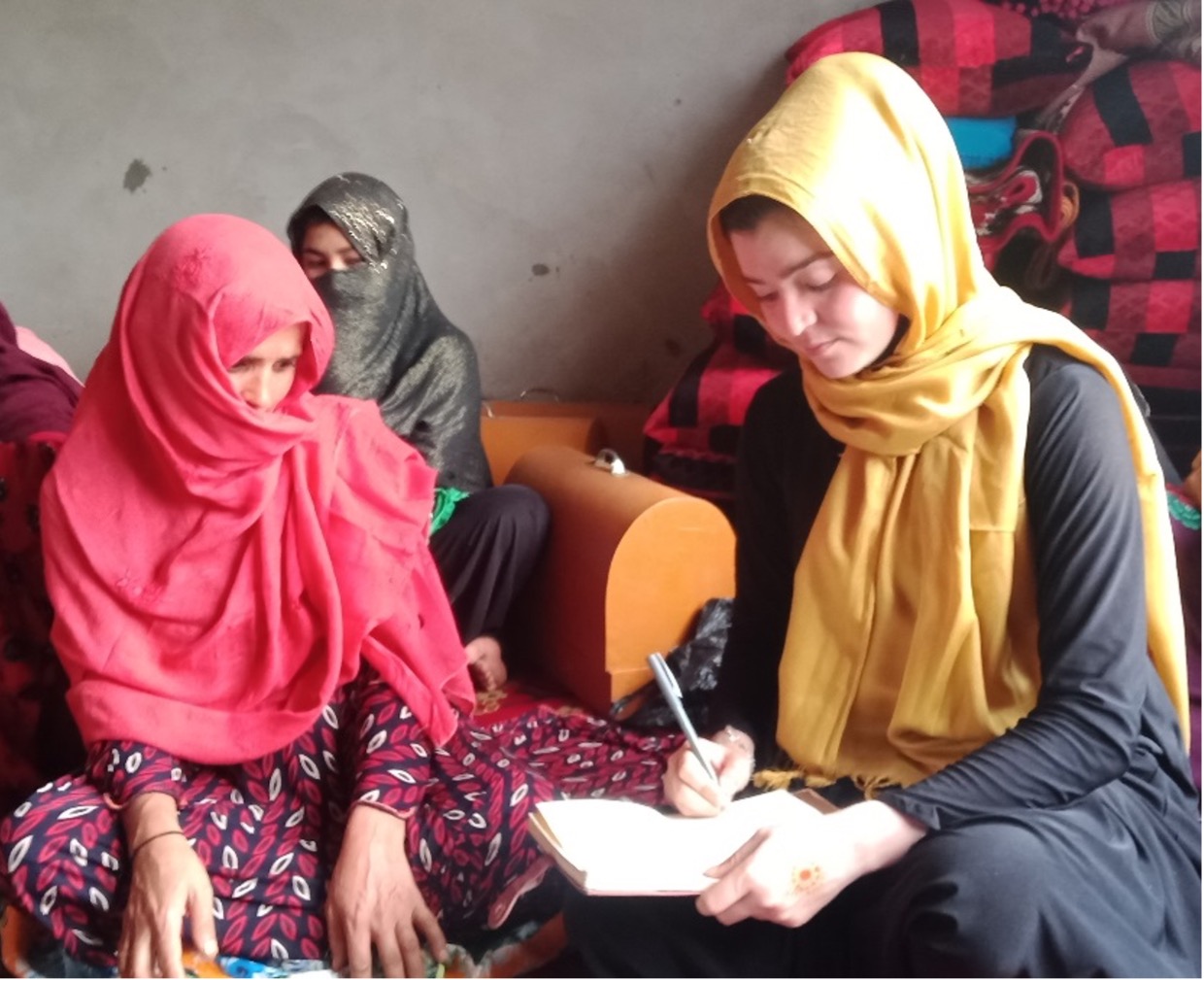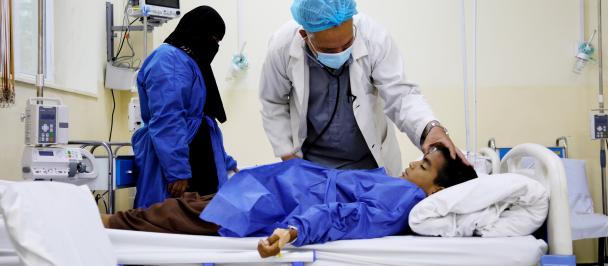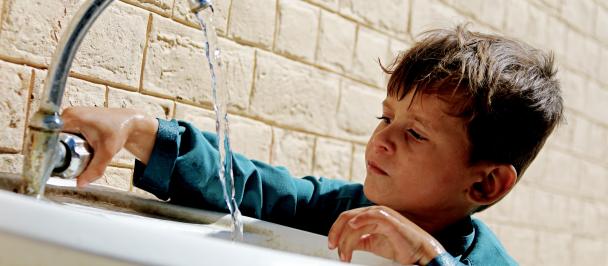UNDP partner Human Rights Research and Advocacy Consortium (HRRAC) promotes Women’s Role in Peacebuilding and Social Cohesion in Surobi, Kabul
Economic Empowerment Strengthens Voices of Women and Girls
September 22, 2022

Participants of vocational training in Surobi district of Kabul, Afghanistan
The population of Surobi, Kabul boasts a diverse ethnic variety from all over the country. The communities are predominately tribal with male-dominated social customs. The awareness level of the locals on social cohesion and peacebuilding is low, and the role of women and girls’ participation in socio-economic activities and peacebuilding is minimal. The meager social space for women and girls in the public sphere rapidly further declined during the COVID-19 pandemic and the sudden change in power in August 2021, brought forward escalating reports of anxiety, frustration, insecurity, and gender-based violence.
“Surobi is a relatively underdeveloped and marginalized district. Women and girls are usually not allowed to attend school or participate in learning programmes. Social restrictions and harmful customs force women and girls to completely depend on their male family members for income and livelihood, which causes stress and hopelessness.”
“The situation worsened steeply with the recently imposed customs that were brought along with the sudden political change, worsening the rights for women and girls”. said Fouzia, a local women leader from Surobi.
“The deteriorating economy hit girls hardest, forcing them out of school and work for a living rather than studying for a better future”.
UNDP Afghanistan partner HRRAC arranged eight vocational trainings for 120 women and girls. The participants received sewing machines, materials, and tools to start and enhance their businesses. The support led to greater earnings and financial independence and, as a result, strengthened women’s voices in the community and in domestic matters. The communities, in turn, reported decreased cases of domestic violence.
“The economic empowerment programme gave women like me the chance to enhance my sewing skills which means I can support my children’s school and my family’s needs better,” she added.
The project also supported the establishment of eight women and girls’ advocacy groups. Each group comprised a minimum of 15 members and they were trained in advocacy, the disproportionate and unique impact of armed conflict on women and girls, and methods of conflict resolution and mediation.
“Women advocacy groups meet and discuss issues related to us in a safe space," explains Parwana, a youth community leader. "We have been able to restore dialogue among ourselves and collectively work towards solutions without turning to men."
“Since establishing the women advocacy groups, we have had fewer conflicts in the neighborhood. This has also brought peace to our homes" said Madina, another participant.
UNDP Afghanistan encourages the active participation of women and girls in issues that affects their lives through partner HRRAC. On top of the 120 women and girls who received vocational training and tools to enhance their economic empowerment, another 120 men and boys participated in how they can positively engage in realising women’s rights and protecting them from gender-based violence.
A total of 991 persons (533 women) gained participated in various programmes that informs a better awareness of women and girls’ rights and methods of empowerment, advocacy, conflict resolution, mediation methods, and how they can contribute to the peacebuilding process.

 Locations
Locations



